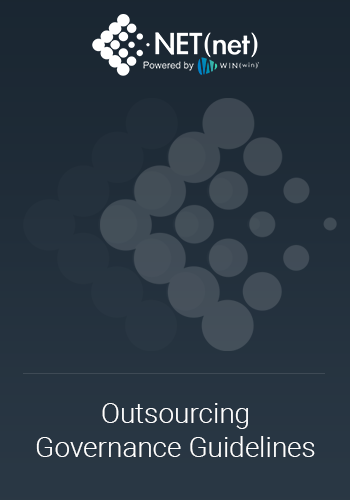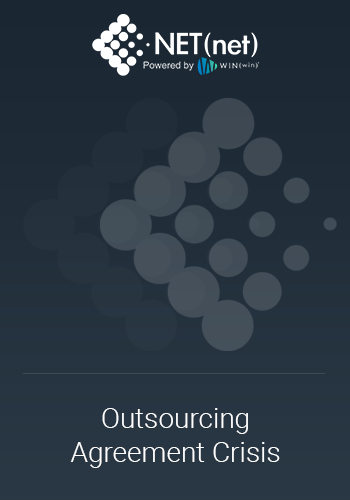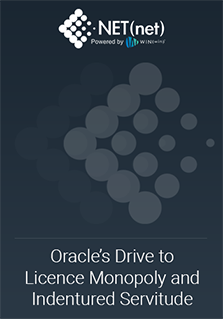‘The Most Wonderful Time of the Year’ is a popular holiday song and was written by Edward Pola and George Wyle in 1963. It was popularized in North America by singer Andy Williams that same year on his television show by the same name. However, we didn’t have to do much research to learn that the inspiration for that song had nothing to do with the 4th quarter for most business leaders and their respective companies. Anecdotally, we believe most business leaders might say it’s the most *stressful* time of the year, especially for publicly traded companies – most of whom have their fiscal year end aligned with the calendar year end of December 31st. Unfortunately, most technology suppliers add to that stress as they too, are either ending their fiscal year and hence pushing hard to finish strong, or know its YOUR fiscal year end and are pushing hard to capture more of your left over and/or future budget dollars. Seemingly every major supplier has a “once in a lifetime” special offer for you to consider every year-end.
Technology buyers probably haven’t helped the stress associated with Q4 as often there are changes thrown upon them. Purchases getting pushed until the end of the year, urgency to spend unused budget, and last-minute management decisions that pull in projects scheduled for Q1 to Q4 current year books for better financial reporting.
All these behaviors and activities incentivize predatory behavior by suppliers who are more than happy to devise techniques and strategies to take advantage of the circumstances. Below we outline just five of the ways Technology Suppliers look to take advantage of ‘the most wonderful time of the year’, and some strategies for you to understand and optimize them in your favor and maybe not only relieve some of the stress but gain some quick wins for both supplier and buyer.
1. Buying Deadlines
“This pricing is only good until <<DATE>>, after that we’ll have to start the process all over again with a new pricing model.”
On the face of it, this statement sounds like such an obvious ruse that it should be dismissed out of hand, but the rate at which it creates unnecessary urgency with their customers is borderline shocking. Just to put your mind at ease, while there may be ‘new’ pricing on the horizon, and in some cases, the prices will actually go up, sales leaders typically can discount what they want, when they want, and arbitrary deadlines like this are generally meant solely to push for decisions that are less thought out and, on a timeline, serving the supplier’s sales forecast numbers and accuracy, not the buyer’s long term and strategic interests.
As in The Godfather, Part II, your response to this should be….nothing. When this type of ultimatum is put in front of you, we suggest you ignore it and pursue a strategy that aligns with optimizing your deployment and budget. If you are truly compelled to answer back, we suggest saying something like… we choose to partner with firms who work with us to create long term sustainable business value, not try to pressure us to close a deal that isn’t fully thought out and cost justified on an artificial timeline. We thought you were the former, but you are sounding a little bit too much like the latter right now. Did we misunderstand your intentions here? After they come back, get more granular, and make sure they commit to provide you with high value and low costs solutions for the long term.
There are strategies we employ that can turn the tables on these deadlines, and they are different for most suppliers. Drop us a line if you’re confronted with this situation, and we’ll help you with the best way to handle it.
2. Blank Checks for Future Spend
“Listen, we know you’re going to buy more technology next year, so go ahead and spend your left-over budget dollars with us now, and we will hold it as a credit, which will enable us to fill in the products at a later time once we have all the details.”
While on the surface, this sounds like it could be a bit intriguing or at least an interesting way to barter for higher discounts, this can create a lot of trouble for you on so many levels down the road. Suppliers can use this approach to lock you in to certain products that you may or may not really need. They can also inflate the values of those future purchases, so that the future credit is worth effectively less than it is today in real dollars. Further, technology roadmaps, budgets, and staff availability can change in a matter of weeks that can impact that ‘future spend’, rendering parts or all of it as worthless.
Overall, the risk here is simply far too high and gives both leverage and revenue with no strings attached to the supplier unnecessarily.
3. Pricing Too Good to be True
“We are really trying to make our number before year end, so the pricing on this proposal is the best its ever going to be. This is a once in a lifetime offer!”
Often this pricing does look amazing….it’s meant to. But at the end of the day, you must remember that suppliers, especially software vendors, ALWAYS seem to MAKE IT BACK and more. Whether its raising implementation charges, new service and support costs, miscellaneous fees, ‘erroneous’ billing, and holding back options within product or service several weeks or months later; “Oh, you need that feature enabled? That’s not covered in our current agreement, so we’ll need an amendment to add it.” And you guessed it, any significant discount on that feature will be non-existent.
In more cases than not, we find that these ‘once in a lifetime’ deals are stuffed with unneeded things, are restrictive in their use covenants, and/or end up causing more problems long term. In super rare cases, where a purchase is already fully thought out and cost justified, and the client is planning on making the purchase anyway at the previously proposed price, the ‘waiting game’ can add some value if you are lucky enough to find yourself in this situation, but that is a unicorn. Suppliers are very good at making you believe you have stumbled into this very lucky situation, but 99 times out of 100, this is a designed situation, and is engineered by the supplier.
4. Pressure Audits
“Listen, we can probably help you get rid of all these unlicensed usage charges that will result from an audit if you just execute a new cloud agreement with us.”
More and more technology suppliers are using this strategy (successfully) to coerce their customers into “cloud” purchases they may not need or want or be ready for internally. Wall Street is now specifically attuned to these suppliers’ related cloud growth, and as a result it has incentivized software sales leaders to drive customers to the cloud using whatever leverage is available. If there is no naturally occurring leverage, then of course they try and create it with the direct or implied threats of an audit (as well as unintelligible claims not fully supported by the contract).
There are several strategies that can be employed before, during and after audits to mitigate your risk and exposure. NET(net) has successfully worked with clients to turn audit events into a win for all parties, without mortgaging their future IT roadmap.
5. Doubling Quota Recognition for Salespeople
“Good news team. In order to reward your efforts in Q4, we will double revenue recognition for new cloud deals that close before year end.”
Nothing motivates like getting twice the benefit for the same amount of quota retired. For example, if a sales representative’s quota is $1m in cloud sales for Q4, and they sell $500k in software and services, the company will reward them with another $500k in recognition, which in effect gets them to quota that much faster. More importantly however, compensation plans typically have commission accelerators such that when you achieve quota, you might get 125% commission for every dollar over quota. So, the incentive to achieve quota and get into commission accelerators is very high and can result in a rep making more in one quarter than they may have the rest of the year.
Is it any wonder then why salespeople are highly motivated to utilize any tools at their disposal to move the needle on sales and revenue? On the other side, what’s in it for the Finance, IT, and Procurement leaders? Typically, their biggest incentive is to not make a wrong move that will cost them time and money down the road. Some Finance and Procurement professionals have financial incentives to save, but typically nowhere near what sales professionals can achieve in commissions. Hardly equitable motivations for the two sides of the buyer and seller ‘coin’.
Lastly, please remember that technology sales people are literally trained by professionals to master these techniques on a recurring basis and are paid handsomely to succeed in maximizing deal and margin size. Evidence of their success:
- Microsoft: Net Income $44.2B, Cloud Gross Margin – 67%!
- Alphabet: Net Income $15.2B
- AWS: Profit $13.5B
- IBM: Profit $5.6B
- Oracle: Non-GAAP Net Income: $14.1B
- SAP: Operating Profit €6.62
- SF.com: Gross Profit $12.8B, Salesforce spent $7.9B on ‘Marketing and Sales’ fiscal 2020!
These are but five of the more common ways that Technology sales teams try to take advantage of the year end Q4 stress their customers experience. And as you read them, I’m sure some of them seemed obvious, and that you could not see yourself ‘falling for that pressure tactic’. Our experience however, tells us that often people (and teams) are pressured into making decisions that are not in their long-term best interest. Since our founding in 2002, NET(net) has seen every technique used by technology suppliers and knows how to work with them. Contact us if you find yourself in any of the above situations, or just need some advice on how to optimize your technology agreements, investments and relationships.
About NET(net)
Founded in 2002, NET(net) is the world’s leading IT Investment Optimization firm, helping clients find, get and keep more economic and strategic value. With over 2,500 clients around the world in nearly all industries and geographies, and with the experience of over 25,000 field engagements with over 250 technology suppliers in XaaS, Cloud, Hardware, Software, Services, Healthcare, Outsourcing, Infrastructure, Telecommunications, and other areas of IT spend, resulting in incremental client captured value in excess of $250 billion since 2002. NET(net) has the expertise you need, the experience you want, and the performance you demand. Contact us today at info@netnetweb.com, visit us online at www.netnetweb.com, or call us at +1-866-2-NET-net to see if we can help you capture more value in your IT investments, agreements, and relationships.
NET(net)’s Website/Blogs/Articles and other content is subject to NET(net)’s legal terms offered for general information purposes only, and while NET(net) may offer views and opinions regarding the subject matter, such views and opinions are not intended to malign or disparage any other company or other individual or group.

















